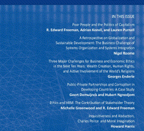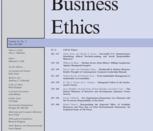One of the great dilemmas in business has always been whether a certain amount of deceptions or trickery is an ethical practice. For decades businessmen have perfected some form of business bluffing whether it was to gain an edge against a competitor or to get a promotion. However, simply because everyone else is bluffing does not make it an ethical practice, or does it? Albert Z. Carr has attempted to answer this question in his article, "Is Business Bluffing Ethical?"� The "ÃÂbluff' in business is regarded as one of the most widely accepted game strategies according to Carr. Try to think of business as one big poker game. Bluffing in a poker game does not reflect at all on the morality or the ethical practices of the player. Similarly, Carr believes bluffing in business should be given the same consideration. The underlying premise to this ethical norm is that all sides know that bluffing takes place in business.
Carr quotes Henry Taylor as saying; "Falsehood ceases to be falsehood when it is understood on all sides that the truth is not to be spoken"�. (Beauchamp, Bowie, p. 501) The ethics of business must also be separated from the ethical practices in other circumstances. The ethics of business are not the same as the ethics used in religion or some of our personal lives. Business ethics are game ethics. In game ethics it is understood that the objective is to succeed or win and it is acceptable to do what is necessary within the rules of the game to reach that objective. Most business people participate in some form of bluffing without even realizing they are doing anything that would even be considered ethically unjust. Carr sites a businessman who believes he is running his business more than ethically by...


